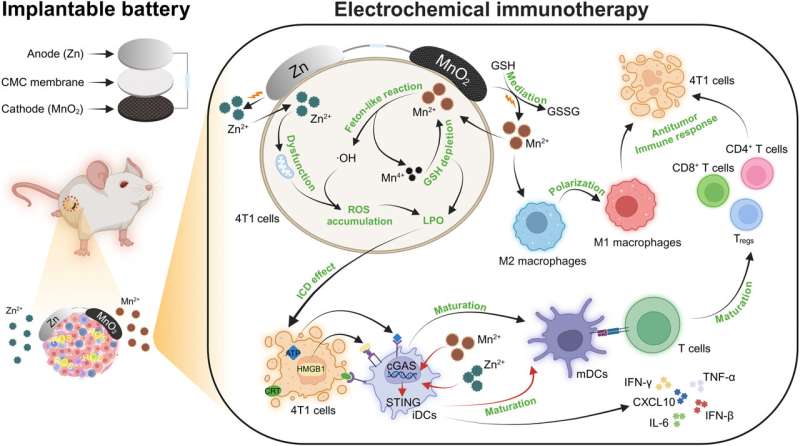The breakthrough, a global collaboration between Distinguished Professor Gordon Wallace and Professor Caiyun Wang from the Intelligent Polymer Research Institute (IPRI) at the University of Wollongong (UOW) and researchers from Jilin University in China, is outlined in a new paper published in Science Advances.
Biobatteries have the same basic parts as regular batteries—two electrodes (anode and cathode), a separator and an electrolyte—but use biological processes to create electricity. The paper examines how biobatteries can be used to target tumors and spark a localized immunotherapy response in the body.
When the battery is in use, tiny particles called electrons are released from one electrode (the anode) and travel to the other (the cathode), where they’re consumed. These movements are accompanied by chemical reactions that harness the body’s immune response.

